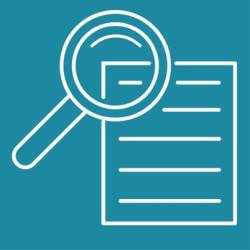
Warning signs
It is important to watch out for signs of financial abuse, so you are ready to step in if your loved one needs help.

Alma’s story
Imagine you plan a visit with Alma, and she invites her new best friend to meet you. The new friend interrupts Alma many times, dismisses Alma’s feelings, and says “that’s not true” when Alma complains that some of her jewelry has gone missing. You get a bad feeling and wonder if the new friend may be taking advantage of Alma. You decide to visit Alma again tomorrow when the new friend is not there to talk with Alma privately about the situation.
Many things could signal that someone could be financially abusing your loved one. Here is a list of some “red flags” to watch for.
Things your loved one tells you or that you observe:
- Says someone is misusing or stealing their money or property;
- Says a checkbook, credit or debit card, or important papers are missing; or
- Becomes more private or secretive.
It is very important to speak with your loved one, stay calm, and listen to what they say. It may take several conversations to get the whole story. Does your loved one have challenges such as dementia, communication barriers, substance abuse, or mental illness that could make their story harder to understand or rely on? For example, sometimes people with memory loss may incorrectly believe money or property has been stolen because they do not remember what happened to it. In this case, it may be helpful to also talk to other people who might have observed the situation or look at financial records to get more information.
Things you see in your loved one’s living space, if you can visit:
- Missing possessions, or possessions replaced with items of lesser value;
- Missing medications;
- Basics (such as toothpaste or undergarments) are missing, but your loved one’s personal needs account is empty; or
- Blank withdrawal forms or checkbooks are left out in the open.
Problems with other family and friends:
- Someone pressures your loved one to make a financial decision, change a will, deed, or trust, or sign a document “now”;
- Someone threatens that unless your loved one takes some financial action, they will stop taking care of your loved one;
- You are allowed to visit your loved one only when a certain person is present;
- A certain person often interrupts or speaks for your loved one;
- A new friend seems possessive of your loved one, and isolates them from you or other friends and family;
- Your loved one, or another family member or financial caregiver, has a problem with gambling, drugs, or alcohol;
- Your family is arguing about your loved one’s money; or
- After you start asking questions about suspected financial abuses, someone tells you they plan to move your loved one to a new location.
Problems with paying bills or managing money:
- Unpaid bills with the nursing home or assisted living community, doctor, or pharmacy, especially when your loved one should have enough money to cover their expenses;
- Your loved one gets bills for unnecessary services or medical equipment; or
- The person managing your loved one’s money is late paying bills or breaks their promises.
Problems with a financial caregiver:
- Someone says they are your loved one’s financial caregiver but does not have any written proof, such as a power of attorney document signed by your loved one;
- Your loved one is not able to make their own decisions, but they sign a new power of attorney, will, or other legal document;
- Multiple financial caregivers argue over who is responsible for paying your loved one’s bills;
- A financial caregiver who has been helping your loved one is suddenly replaced with a new person;
- A financial caregiver is not meeting your loved one’s needs; or
- Someone pressures your loved one to refuse medical care or medication due to cost.
Checks, charges, and gifts:
- Checks or other documents are signed when your loved one is no longer able to write;
- You see different versions of your loved one’s signature or you see a signature that was shaky is suddenly firm;
- Your loved one’s account has many checks made out to “cash,” or checks are used out of number order;
- You see credit card or debit card charges for items that your loved one did not buy;
- Your loved one makes gifts (either frequent or expensive) to care team members or volunteers; or
- Your loved one sells valuable items to care team members or volunteers.